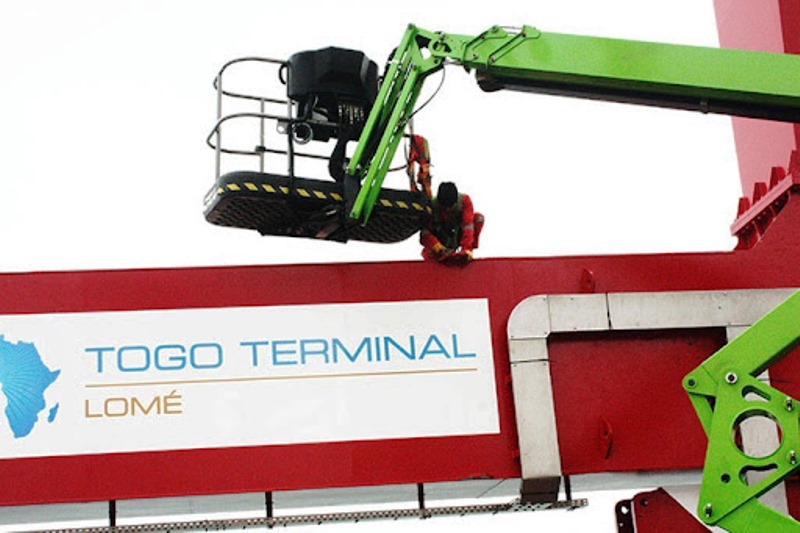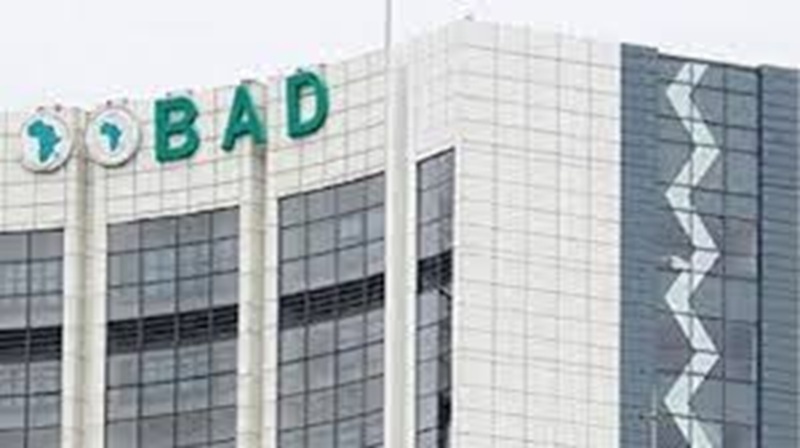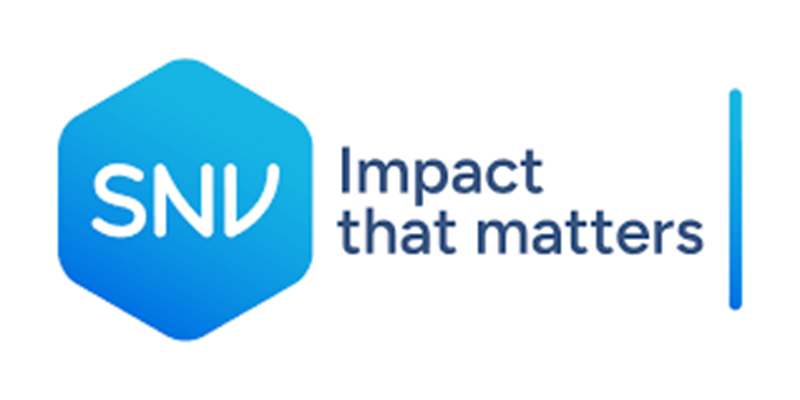Le Programme des Nations unies pour le développement est une organisation des Nations unies chargée d’aider les pays à éliminer la pauvreté et à atteindre une croissance économique et un développement humain durables. Basé à New York, il s’agit de la plus grande agence d’aide au développement des Nations unies, avec des bureaux dans 170 pays.
POSTE 1
Un(e) consultant(e) national(e) pour la réalisation d’une étude sur les principaux facteurs entravant l’effectivité des droits des femmes
| Procurement Process : | RFQ – Request for quotation | |
| Office : | Niger – NIGER | |
| Deadline : | 20-May-22 | |
| Posted on : | 10-May-22 | |
| Development Area : | CONSULTANTS | |
| Reference Number : | 90993 | |
| Link to Atlas Project : Non-UNDP Project |
||
| Documents : NOTICE TDRs |
||
| Overview :Le bureau du PNUD Niger vous prie de bien vouloir lui adresser votre soumission au titre du « Recrutement d’un(e) consultant(e) national(e) pour la réalisation d’une étude sur les principaux facteurs entravant l’effectivité des droits des femmes au Niger».
Veuillez utiliser le formulaire figurant dans l’annexe 2 jointe aux présentes pour les besoins de la préparation de votre soumission. Les soumissions, adressées à la Représentant Résident Adjoint peuvent être déposées jusqu’au vendredi 20 mai 2022 à 13 heures 00 GMT+1 à l’adresse suivante : [email protected] Votre soumission doit être rédigée en Français avec une durée de validité minimum de 90 jours. La demande de proposition en attache et les TDRs en annexe 2 vous aideront à mieux préparer votre offre. |
||
POSTE 2
Consultant national pour l’évaluation finale du projet « Renforcer la réponse du secteur de la justice et de la sécurité au trafic de drogue et au crime organisé transnational pour réduire l’insécurité »
Background |
|
| Guinea-Bissau has been in a vicious cycle of political instability since its independence, which primarily stems from a series of intertwined causes, including lack of access to justice and impunity. Despite the consecration of fundamental political, civil, economic and social rights by the Constitution, laws are barely implemented or enforced, resulting in limited and inequitable access to quality justice services for the population and an overall decline in confidence in the modern state system of justice institutions.
The negative impact of transnational organized crime, especially drug and human trafficking and related cross-cutting crimes, corruption and money laundering, has been recognized at the highest level by the Guinea-Bissau authorities, and the fight against it has become a national priority. In June 2018, the President of the Republic and the Government of Guinea-Bissau requested the support of the United Nations in the fight against organized crime. In its resolution 2404, adopted on 28 February 2018, the Security Council (SC) expresses concerns at the range of challenges that weak and dysfunctional security institutions pose, including impairing the ability of the State to extend public security and rule of law within its boundaries, and noting that good governance and oversight of the security sector is important in ensuring that security institutions are capable of protecting the population. Furthermore, the UN Secretary-General, in resolution 2458 (2019) stressed that the consolidation of peace and stability in Guinea-Bissau can only result from a consensual, inclusive and nationally owned process, priority reforms in the security and justice sectors, and the fight against impunity and drug trafficking. The Project Considering the impact Drug Trafficking and Transnational Organanized Crime (DTOC) have in the development and stability of the country, as well as on the credibility and accountability of its institutions, the UN decided to support the national authorities to improve capacity for sustaining peace by supporting national actors in developing resilient national capacities and addressing conflict drivers that undermine social cohesion and that may lead to violent conflict. In this regard, UNDP, UNODC, IOM, UNIOGBIS-CDTOC, combined their expertise for an integrated, coordinated approach in strengthening national capacities to address drug trafficking and organized crime during the United Nations reconfiguration in Guinea-Bissau. In this sense UNDP, UNODC, IOM, are implementing the joint project “Strengthening the Justice and Security Sector response to drug trafficking and transnational organized crime to reduce insecurity in Guinea-Bissau”, funded by the UN Peacebuilding Fund (PBF). The overall goal of the project is to reduce Guinea-Bissau’s vulnerability to drug trafficking and organized crime and to diminish the negative impact of such crimes on the fragility and dependence of the country’s security institutions, rule of law and local communities, hence reducing a major source of the country’s cycle of instability. The objective is to support Rule of Law and Security Institutions to more effectively prevent, investigate and prosecute drug trafficking and transnational organized crime, reducing the country’s sources of fragility. The expected results of the project are:
The project’s main beneficiaries are Law Enforcement Agencies (LEA) , judicial actors and Civil Society Organizations (CSOs).
Objective of the assignment The main objective of the final evaluation is to assess the achievements of the project and to determine its overall added value to peacebuilding in Guinea-Bissau, including its relevance, coherence, effectiveness, efficiency, sustainability and impact and identify baseline indicators for the project next phase. In assessing the degree to which the project met its intended peacebuilding objectives and results, the evaluation shall seek for evidence of peacebuilding results, highlight the strategies and interventions that have contributed to or hindered their achievement, and provide lessons learned from the project and recommendations for future programming. The evaluation will be of interest to UNDP, UNODC, IOM, the Peacebuilding Support Office of the United Nations (PBSO), the United Nations Peacebuilding Fund (PBF), the Government of Guinea-Bissau (namely the Ministry of Justice), as well as to international donors and policy makers engaged in the country. Scope of Evaluation The evaluation will be conducted by the Evaluation Team composed of an International Evaluation Consultant (Team Leader) and National Evaluation Consultant. The International Evaluation Consultant is the primary evaluation lead and ultimate penholder and will lead the evaluation process, including the data collection and analysis methodology, and decide on planning and distribution of the evaluation workload and tasks. The National Evaluation Consultant will provide support to the International Evaluation Consultant throughout the evaluation process and assist with in-country data collection. The geographic scope of the evaluation coincides with the project scope, namely: Bissau, Bafatá, Gabu, Oio, Cacheu, Biombo, Bolama, Quinara and Tombali. The evaluation should be conducted in accordance with the OECD DAC evaluation principles[1] as well as PBF specific evaluation criteria, which have been adapted to the context, and cover the whole duration of the project, between January 2020 and August 2022. A number of key evaluation questions are reported below for each of the OECD DAC evaluation criteria. During the inception phase, the consultant will be responsible for analyzing, selecting, refining and complementing them, compiling the final set of questions the evaluation will seek to answer, to be included in the final Inception Report. The gender dimension will require special attention for this evaluation and must be considered under each evaluation criterion. Relevance
Coherence
Effectiveness
Efficiency
Impact
Sustainability & Ownership
Conflict Sensitivity
In addition to the above standard OECD/DAC criteria, the additional PBF specific evaluation criteria below should also be assessed by the evaluation. Within the structure of the evaluation report, the below criteria may either be reflected separately or integrated into the above evaluation criteria. Regardless, the evaluation must identify specific evaluation questions on the below criteria. Catalytic:
Gender-Responsive/Gender-Sensitive
Risk-Tolerance and Innovation:
[1] OECD/DAC Evaluation criteria available at: http://www.oecd.org/dac/evaluation/revised-evaluation-criteria-dec-2019.pdf
|
|
Duties and Responsibilities |
|
| Duties and Responsibilities
The consultant, under the overall supervision of UNDP’s Chief Technical Adviser for Justice, is expected to perform the following activities:
Deliverables The following deliverables are expected:
Duration of the assignment The assignment must be conducted during 40 working days within the span of twelve weeks, (including 6 days for documentary review and preparation of inception report; 15 days for data collection and 1 day for presentation of preliminary findings; 10 days for further analysis and draft evaluation report preparation; 3 additional days for finalisation of the report following ERG comments) within the span of twelve weeks.
|
|
Competencies |
|
| Consultant Profile
Competencies
|
|
Required Skills and Experience |
|
Education:
Experience:
Language:
Payment conditions: The financial disbursement will be processed as follows:
Guidelines for Application: Required documents:
Lump sum contracts: The financial proposal shall specify a total lump sum amount, and payment terms around specific and measurable (qualitative and quantitative) deliverables (i.e. whether payments fall in installments or upon completion of the entire contract). Payments are based upon output, i.e. upon delivery of the services specified in the ToR. In order to assist the requesting unit in the comparison of financial proposals, the financial proposal will include a breakdown of this lump sum amount (including travel, per diems, and number of anticipated working days). Travel: All envisaged travel costs must be included in the financial proposal. This includes all travel to join duty station/repatriation travel. In general, UNDP should not accept travel costs exceeding those of an economy class ticket. Should the Individual Consultant wish to travel on a higher class he/she should do so using their own resources. In the case of unforeseeable travel, payment of travel costs including tickets, lodging and terminal expenses should be agreed upon, between the respective business unit and Individual Consultant, prior to travel and will be reimbursed. Evaluation: Individual consultants will be evaluated based on the following methodologies: Cumulative analysis When using this weighted scoring method, the award of the contract should be made to the individual consultant whose offer has been evaluated and determined as:
Only candidates obtaining a minimum of 70 points would be considered for the Financial Evaluation. Evaluation criteria:
|
POSTE 3
Consultant international pour l’évaluation externe finale du projet « Renforcer la réponse du secteur de la justice et de la sécurité au trafic de drogue et au crime organisé transnational pour réduire l’insécurité »
Background |
|
| Guinea-Bissau has been in a vicious cycle of political instability since its independence, which primarily stems from a series of intertwined causes, including lack of access to justice and impunity. Despite the consecration of fundamental political, civil, economic and social rights by the Constitution, laws are barely implemented or enforced, resulting in limited and inequitable access to quality justice services for the population and an overall decline in confidence in the modern state system of justice institutions.
The negative impact of transnational organized crime, especially drug and human trafficking and related cross-cutting crimes, corruption and money laundering, has been recognized at the highest level by the Guinea-Bissau authorities, and the fight against it has become a national priority. In June 2018, the President of the Republic and the Government of Guinea-Bissau requested the support of the United Nations in the fight against organized crime. In its resolution 2404, adopted on 28 February 2018, the Security Council (SC) expresses concerns at the range of challenges that weak and dysfunctional security institutions pose, including impairing the ability of the State to extend public security and rule of law within its boundaries, and noting that good governance and oversight of the security sector is important in ensuring that security institutions are capable of protecting the population. Furthermore, the UN Secretary-General, in resolution 2458 (2019) stressed that the consolidation of peace and stability in Guinea-Bissau can only result from a consensual, inclusive and nationally owned process, priority reforms in the security and justice sectors, and the fight against impunity and drug trafficking. The Project Considering the impact Drug Trafficking and Transnational Organanized Crime (DTOC) have in the development and stability of the country, as well as on the credibility and accountability of its institutions, the UN decided to support the national authorities to improve capacity for sustaining peace by supporting national actors in developing resilient national capacities and addressing conflict drivers that undermine social cohesion and that may lead to violent conflict. In this regard, UNDP, UNODC, IOM, UNIOGBIS-CDTOC, combined their expertise for an integrated, coordinated approach in strengthening national capacities to address drug trafficking and organized crime during the United Nations reconfiguration in Guinea-Bissau. In this sense UNDP, UNODC, IOM, are implementing the joint project “Strengthening the Justice and Security Sector response to drug trafficking and transnational organized crime to reduce insecurity in Guinea-Bissau”, funded by the UN Peacebuilding Fund (PBF). The overall goal of the project is to reduce Guinea-Bissau’s vulnerability to drug trafficking and organized crime and to diminish the negative impact of such crimes on the fragility and dependence of the country’s security institutions, rule of law and local communities, hence reducing a major source of the country’s cycle of instability. The objective is to support Rule of Law and Security Institutions to more effectively prevent, investigate and prosecute drug trafficking and transnational organized crime, reducing the country’s sources of fragility. The expected results of the project are:
The project’s main beneficiaries are Law Enforcement Agencies (LEA) , judicial actors and Civil Society Organizations (CSOs). • The project scope, budget, implementation timeframe, as well as further specific details of the project are available at: https://mptf.undp.org/factsheet/project/00119444 . Objective of the assignment The main objective of the final evaluation is to assess the achievements of the project and to determine its overall added value to peacebuilding in Guinea-Bissau, including its relevance, coherence, effectiveness, efficiency, sustainability and impact and to define/identify the baseline indicators for the project´ next step. In assessing the degree to which the project met its intended peacebuilding objectives and results, the evaluation shall seek for evidence of peacebuilding results, highlight the strategies and interventions that have contributed to or hindered their achievement, and provide lessons learned from the project and recommendations for future programming. The evaluation will be of interest to UNDP, UNODC, IOM, the Peacebuilding Support Office of the United Nations (PBSO), the United Nations Peacebuilding Fund (PBF), the Government of Guinea-Bissau (namely the Ministry of Justice), as well as to international donors and policy makers engaged in the country. Scope of Evaluation The evaluation will be conducted by the Evaluation Team composed of an International Evaluation Consultant (Team Leader) and National Evaluation Consultant. The International Evaluation Consultant is the primary evaluation lead and ultimate penholder and will lead the evaluation process, including the data collection and analysis methodology, and decide on planning and distribution of the evaluation workload and tasks. The National Evaluation Consultant will provide support to the International Evaluation Consultant throughout the evaluation process and assist with in-country data collection. The geographic scope of the evaluation coincides with the project scope, namely: Bissau, Bafatá, Gabu, Oio, Cacheu, Biombo, Bolama, Quinara and Tombali. The evaluation should be conducted in accordance with the OECD DAC evaluation principles[1] as well as PBF specific evaluation criteria, which have been adapted to the context, and cover the whole duration of the project, between January 2020 and August 2022. A number of key evaluation questions are reported below for each of the OECD DAC evaluation criteria. During the inception phase, the consultant will be responsible for analyzing, selecting, refining and complementing them, compiling the final set of questions the evaluation will seek to answer, to be included in the final Inception Report. The gender dimension will require special attention for this evaluation and must be considered under each evaluation criterion. Relevance
?Coherence
?Effectiveness
Efficiency
Impact
Sustainability & Ownership
Conflict Sensitivity
In addition to the above standard OECD/DAC criteria, the additional PBF specific evaluation criteria below should also be assessed by the evaluation. Within the structure of the evaluation report, the below criteria may either be reflected separately or integrated into the above evaluation criteria. Regardless, the evaluation must identify specific evaluation questions on the below criteria. Catalytic:
Gender-Responsive/Gender-Sensitive
Risk-Tolerance and Innovation:
[1] OECD/DAC Evaluation criteria available at: http://www.oecd.org/dac/evaluation/revised-evaluation-criteria-dec-2019.pdf
|
|
Duties and Responsibilities |
|
| Duties and Responsibilities
The consultant, under the overall supervision of UNDP’s Chief Technical Adviser for Justice, is expected to perform the following activities:
Particular attention will be paid to taking into account public health measures relating to the COVID-19 epidemic, and their impact on the methodology used. The consultant must present in its application the contingency and protection measures planned to guarantee the health of the teams and people involved, while allowing quality participation and inclusiveness. Deliverables The following deliverables are expected:
Duration of the assignment The assignment must be conducted during 40 working days (including 6 days for documentary review and preparation of inception report; 20 days for in-country data collection and 1 day for presentation of preliminary findings; 10 days for further analysis and draft evaluation report preparation; 3 additional days for finalisation of the report following ERG comments) within the span of twelve weeks.
|
|
Competencies |
|
| Consultant Profile
Competencies:
|
|
Required Skills and Experience |
|
Education:
Experience:
Language:
Payment conditions:
Guidelines for application: Required documents:
Lump sum contracts: The financial proposal shall specify a total lump sum amount, and payment terms around specific and measurable (qualitative and quantitative) deliverables (i.e. whether payments fall in installments or upon completion of the entire contract). Payments are based upon output, i.e. upon delivery of the services specified in the ToR. In order to assist the requesting unit in the comparison of financial proposals, the financial proposal will include a breakdown of this lump sum amount (including travel, per diems, and number of anticipated working days). Travel: All envisaged travel costs must be included in the financial proposal. This includes all travel to join duty station/repatriation travel. In general, UNDP should not accept travel costs exceeding those of an economy class ticket. Should the Individual Consultant wish to travel on a higher class he/she should do so using their own resources. In the case of unforeseeable travel, payment of travel costs including tickets, lodging and terminal expenses should be agreed upon, between the respective business unit and Individual Consultant, prior to travel and will be reimbursed. Evaluation: Individual consultants will be evaluated based on the following methodologies: Cumulative analysis When using this weighted scoring method, the award of the contract should be made to the individual consultant whose offer has been evaluated and determined as:
Only candidates obtaining a minimum of 70 points would be considered for the Financial Evaluation. Evaluation criteria:
|
|





